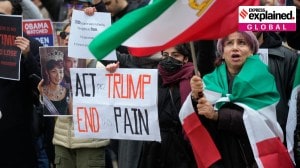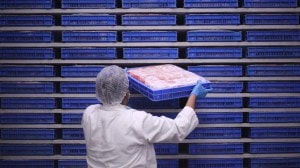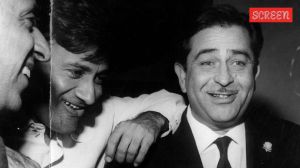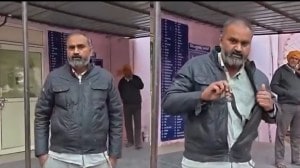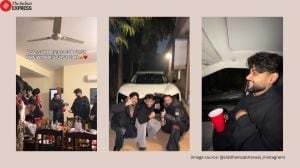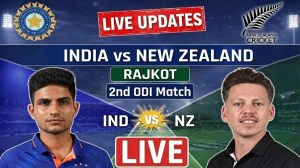Customs and duties
The second era of the great Indian economic reforms story began with Dr Manmohan Singh taking over reins as the Prime Minister and P Chidamb...

The second era of the great Indian economic reforms story began with Dr Manmohan Singh taking over reins as the Prime Minister and P Chidambaram as the Finance Minister. There are plenty of obvious indicators to suggest that things are indeed going well. However, one aberration that stands out is our Department of Customs. This is one place there may be others too where the liberal attitude of the top bosses is yet to sink in. The parochial mentality among officers in the lower ranks is painfully apparent8212;they are simply unable to shed their pre-reform skin and are still prone to blocking measures and decisions on wobbly grounds. This is what happened to many good-intentioned NGOs and international aid agencies, which were actually asked to pay duty on consignments containing medicines they wanted to send to India in aid of tsunami victims. Someone in the Customs Department calculated the amount of duty possible on crores of worth of medicines. But the aid agencies were not amused and they promptly diverted all such consignments to Sri Lanka and other affected countries which had the sense not to levy duties on these benevolent consignments.
We thought our reforms would end such blind adherence to inflexible rules, but clearly we have some way to go. I am also told that a horse of a rare breed has failed to leap across the international border between India and Pakistan and is still stranded at the Wagah border because our Customs wouldn8217;t let him in unless someone pays duties on the poor animal8217;s behalf. This horse was gifted to Captain Amarinder Singh by Pakistani Punjab Chief Minister Pervez Elahi, when the former had gone to Lahore eight months ago. And I am sure everybody would be aware about the silly episode concerning the Customs at Bangalore Airport when the sword of Tipu Sultan, an antique that is the symbol of our proud national legacy, was brought back to India by Vijay Mallya and was slapped with a heavy duty. Mallya has taken the sword back to London.
Banerjee report8212;will anybody listen?
The air is heavy with political allegations and counter-allegations over the Justice Banerjee Commission report on Godhra, especially with the Bihar elections near. However, I strongly believe that the Government of India should take serious note of the report. Firstly the man responsible for it, Justice Banerjee, is firm and convinced that no explosive was thrown from outside into the ill-fated compartment. If his account is correct, then it is a very serious issue as far as our national security is concerned. It is indeed unfortunate that the report of a retired Supreme Court judge is being reduced to a petty weapon in the political battle between Laloo Prasad Yadav and the BJP. Nobody seems to be bothered about the fact that a judicial commission will never give a report unless it has got sufficient and strong evidence for its findings.
It is high time the Prime Minister took note of the matter and if the report provides sufficient proof of the origin of the fire from within the compartment, the Gujarat government should be seriously reprimanded.
Uttam Pradesh8212;a study at Chitrakoot
Uttar Pradesh, a stronghold of the Congress till 1989, has been ruled by coalition governments for a decade now, except for the brief one-party BJP government in the early 1990s. The electoral politics of Uttar Pradesh can be neatly divided into two phases8212;the phase of Congress domination from 1952 to 1989 and the non-Congress phase of coalition governments from 1989 to 1999. The second phase is marked by competition among parties based on caste and communal factors. The recent brainstorming session held by the Congress at Chitrakoot was noteworthy for the state party leaders, including Rahul Gandhi. Impartial experts from different fields painted a very depressing picture of governance in the state in the last 14 years. Experts like N C Saxena, former secretary, Planning Commission; former DG, UP Police, M C Dwivedi; Prof A K Verma; and a senior delegate from the UNDP laid out the state of affairs in Uttar Pradesh as regards economic development, law and order, education, health, infrastructure etc. Saxena was quite explicit and made serious remarks about development money not being spent as it should have been.
The conference made it clear that the pace of economic growth in the state was 30 per cent lower as compared to national and other states8217; growth rate. Employment opportunities have also substantially declined. The way forward is clear, the experts felt8212;UP needs to find a better way to empower its poorest citizens and bring them into decision-making at all levels. UP also needs to transform its public sector so that the conduct of police, the courts and the bureaucracy in general is transparent. There was also a call for administrative and staffing reforms within the civil service.
- 01
- 02
- 03
- 04
- 05








